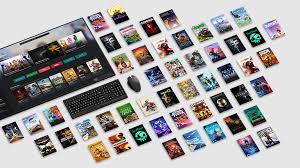Using Games to Visualize Scientific Concepts

Games have long been a popular and effective tool for learning and understanding complex concepts. Whether it’s through engaging gameplay, interactive simulations best server hosting minecraft reddit, or immersive virtual environments, games have the power to make difficult subjects more accessible and engaging.
One area where games are particularly effective is in visualizing scientific concepts. From the intricacies of molecular biology to the vastness of the universe, games can provide a unique and interactive way to explore and understand the world around us.
One of the key benefits of using games to visualize scientific concepts is the ability to make abstract ideas more concrete. By representing complex theories and phenomena in a visual and interactive format, games can help students and enthusiasts gain a better understanding of how these concepts work in practice.
For example, in molecular biology, games can simulate the behavior of molecules and proteins, allowing players to manipulate and experiment with different configurations. This hands-on approach can help players grasp the fundamental principles of molecular biology in a way that traditional textbooks and lectures may struggle to achieve.

Similarly, in astronomy, games can recreate the scale and beauty of the cosmos, giving players the opportunity to explore space and learn about celestial objects in a virtual setting. By allowing players to interact with and experience the wonders of the universe firsthand, games can inspire curiosity and a deeper appreciation for the vastness and complexity of space.
In addition to making scientific concepts more tangible, games can also make learning fun and engaging. By incorporating elements of challenge, competition, and exploration, games can motivate players to actively engage with and learn from the material presented to them. This can be particularly beneficial for younger learners who may struggle to stay focused or motivated when faced with more traditional teaching methods.
From educational games like “Kerbal Space Program” and “Foldit” to simulation games like “Universe Sandbox” and “Cell Lab,” there are a wide variety of games available that can help players visualize and understand scientific concepts in a fun and interactive way.
In conclusion, games have the potential to be a powerful tool for visualizing and understanding scientific concepts. By presenting complex ideas in a visual and interactive format, games can make learning more engaging, accessible, and enjoyable for players of all ages. So next time you’re looking to brush up on your scientific knowledge or explore a new field, consider turning to games as a fun and effective way to visualize and learn about the wonders of the universe.
